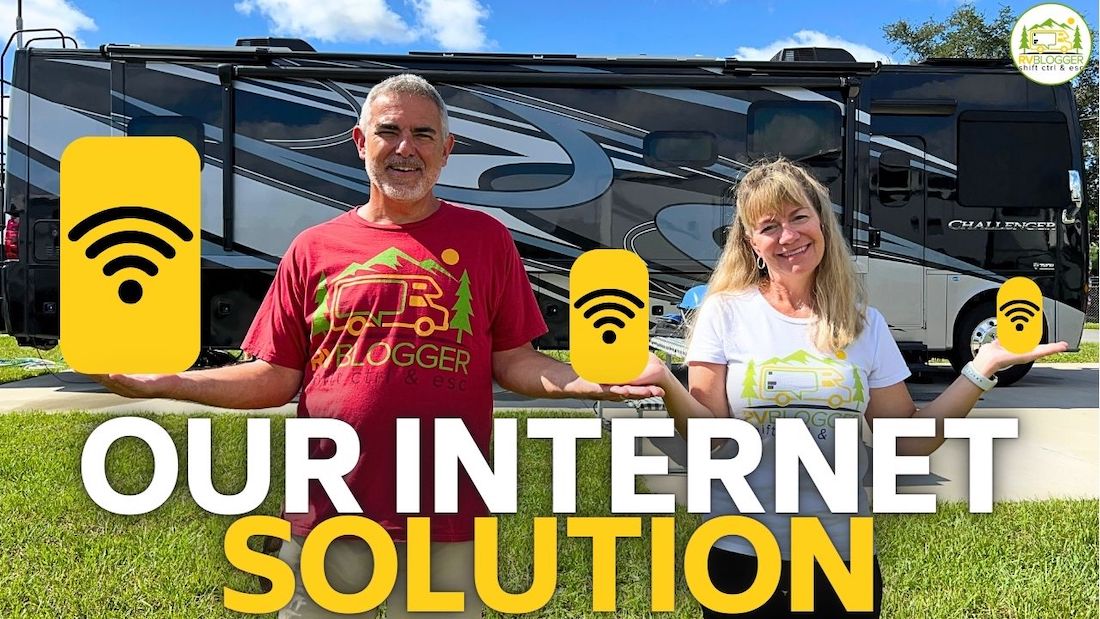Thanks for your support! If you make a purchase using our links in this article, we may make a commission. And, as an Amazon Associate, I earn from qualifying purchases. See the full disclosure here.
Unless you’re a millionaire or enjoying retirement and want to go off the grid, the internet for the RVing lifestyle is essential. You gotta pay the bills, after all, and many full-time RVers are independent contractors who work from home. Even if you don’t need to work, like it or not, the internet is the hub of almost all information these days.
With cable and satellite TV still in their long-lasting death throes, the internet dominates our long-distance connections, social activities, entertainment sources, information gathering, and a large degree of navigational tools.
Internet options are far more numerous than they were ten years ago. Despite a focus on portability outside of RVing, RVers are arguably the ones that benefit the most from the latest and greatest technological breakthroughs in portable, on-the-fly connectivity.
What Is The Best Way To Get Internet For RVing?
The best way to get internet for RVing today is still Mi-Fi or using a smartphone as a hotspot. It’s the best way because it’s the most consistent. This is especially true with Verizon or T-Mobile, since those networks have so much reach, even in rural areas.
Now? The choice is a little more variable. Internet purely for RVing is becoming increasingly accessible (although slowly) with several decent options.
These include Starlink, the aforementioned Mi-Fi, USB Modems, portable Wi-Fi routers, an endless array of Wi-Fi hotspots spread out across the country, and what we look at as an end-around form of Mi-Fi.
Of course, it’s one thing to establish an internet connection while boondocking in the middle of the boonies. It’s quite another to establish reliable internet access while constantly on the move. Despite the advancements in technology, the US network grid leaves a lot to be desired.
This means that some devices may work outstandingly in some places, while others do not so much. We’re looking for the best of the best—devices and services that cover us no matter where we want to travel. That’s a tough sell, but there are some that more or less fit the bill.
RVers, like everyone else, need or want internet on the weekends as well. After all, if you’re working from home, it doesn’t…
Click Here to Read the Full Original Article at RVBlogger…
